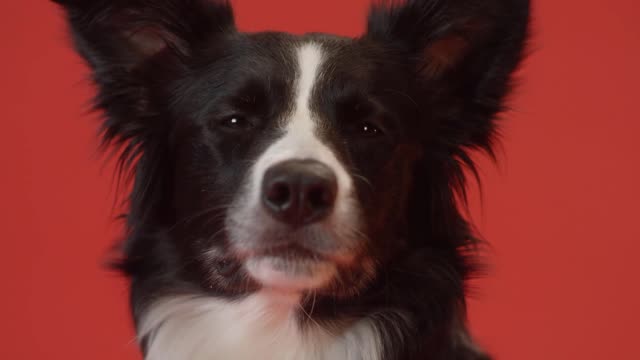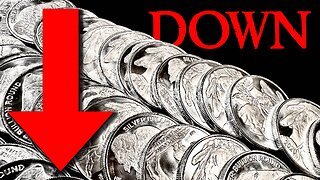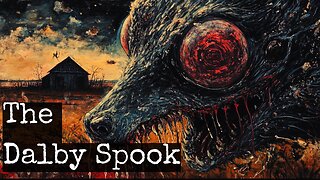Premium Only Content

Does aggressiveness depend on the breed?
Does aggressiveness depend on the breed?
Why are some breeds more aggressive than others? Why is a dog aggressive? Are there docile pit bulls? These are some questions that we ask ourselves from time to time. This article will clarify for you about aggressiveness and why some breeds are more aggressive than others.
In recent years, studies on animal behavior have intensified. With the boom in news about dog attacks on people, pit bull attacks and even dog attacks against their owners, a lot of research has been done on dog aggressiveness.
According to researchers, canine aggressiveness is related to different factors, ranging from those linked to the environment to those related to the biological characteristics of animals (present in the breed).
Nikolaas Tinbergen, Karl von Frisch and Konrad Lorenz are references in studies on animal behavior. Lorenz stressed in 1963, in his book "On Aggression", that aggression in animals has a positive role for the survival of the species, in maintaining the territory.
Veterinarian Hannelore Fuchs says that there are several "types" of aggression, several factors that can trigger an aggressive act. A simpler way to list the types of aggression from a biological point of view, is through the categories presented in a book by the Association of Companion Animal Behaviour Counselors (APBC Book of Companion Animal Behaviour): aggression related to the possession of resources (necessary for survival), aggression due to fear, aggression resulting from a physical cause.
At the same time, Hannelore affirms that this classification does not collaborate much to understand specific cases, when a dog attacks a person.
Veterinarian Mauro Lantzman says that aggression must always be understood in the specific context of its occurrence. According to him, aggression is present in several behaviors and, therefore, should not be understood as a behavior in itself, but as part or component of several behaviors: "There is aggression to protect the territory, or the puppies, at the time of hunting, pain, fear. In this sense, to say that a dog is aggressive in general terms means absolutely nothing. It is necessary to understand when or in which situations the dog is aggressive. Therefore, it is necessary to assess the case individually, in order to address this aggressiveness", says Lantzman. The doctor adds that the care with the dog can also make it aggressive as, for example, when it is stimulated to be aggressive with other dogs, suffers privations, mistreatments or when it is not adequately socialized and lives a little with people.
It is complicated to expect that a dog that has been living for 2 years in a kennel, receiving food through a grill, is docile, friendly and kind to humans.
Rottweiler is aggressiveAccording to both experts, there are breeds that are considered more aggressive than others, such as pit bull, Argentine dogo, or rottweiler. However, aggressiveness cannot be attributed to the breed alone. Hannelore says that there is a genetic predisposition artificially obtained through crossbreeding, that is, dogs of the same or different breeds, with a more aggressive tendency, reproduce generating dogs that are also aggressive. "They are, therefore, genetically prone to aggression. They are animals selected to react in specific ways in certain situations," she says. Lantzman adds to this explanation the idea that there are breeds, for example, selected to be guard dogs, but which have a more stable aggressiveness because they are older, such as the rottweiler, and others that are less stable and more recent, such as the pit bull.
Monica Grimaldi, a lawyer specialized in causes involving animals and dog breeder, says that the rottweiler breed has existed for more than two thousand years and was used as a draft animal, being more recently directed to be a guard animal. Hannelore says that the selection of animals has been made by man for a long time, not only in relation to aggressiveness, to obtain guard dogs for protection, but also for other characteristics such as docility, passivity, or sociability.
This panorama does not mean, therefore, that among the breeds considered more aggressive there are no docile individuals. "It has been common to find dogs of breeds such as labrador, poodle, and cocker spaniel that are more aggressive, due to an error in the crossbreeding between animals with this predominant characteristic", says Lantzman, highlighting that different from what occurs in European countries there is no type of control over the crossbreeding or the development of more aggressive breeds. For Grimaldi, there is also a marketing issue involved in this, because there is more demand for aggressive dogs nowadays, for safety reasons, and not very responsible breeders cross animals with this purpose, including for dogfighting, an illegal practice in the country.
-
 13:10
13:10
The Rubin Report
23 hours agoWhy the Real Challenge Is Just Beginning | Jordan Peterson
50.5K22 -
 1:02:55
1:02:55
Tactical Advisor
4 hours agoBuilding a Truck Gun -Battle Hawk Build of the Month | Vault Room Live Stream 017
34.2K -
 42:41
42:41
Athlete & Artist Show
3 hours ago $0.54 earnedSeason 5 Episode 3 LIVE
14.2K2 -
 LIVE
LIVE
I_Came_With_Fire_Podcast
11 hours agoThe US GOVERNMENT is PLANNING a UAP FALSE FLAG ATTACK
575 watching -
 18:10
18:10
Sideserf Cake Studio
5 hours ago $0.60 earnedIs This the ULTIMATE Cake Smashing Moment?
14.8K -
 12:51
12:51
Misha Petrov
18 hours agoTrump KICKS OUT Zelenskyy After HEATED White House Meeting!
14.5K58 -
 16:39
16:39
Tactical Considerations
1 day ago $0.58 earnedWatchtower Apache Double Stack 1911 Made Me Question Everything?
12.8K -
 16:20
16:20
T-SPLY
6 hours agoCNN Meltdown Over Zelesnky Disrespecting Donald Trump And JD Vance
10.9K14 -
 8:39
8:39
Silver Dragons
23 hours agoGold & Silver Price KEEP DROPPING 👀
7.8K4 -
 1:20:14
1:20:14
TheTapeLibrary
19 hours ago $0.39 earnedThe Strangest Paranormal Case of All Time
5.67K1